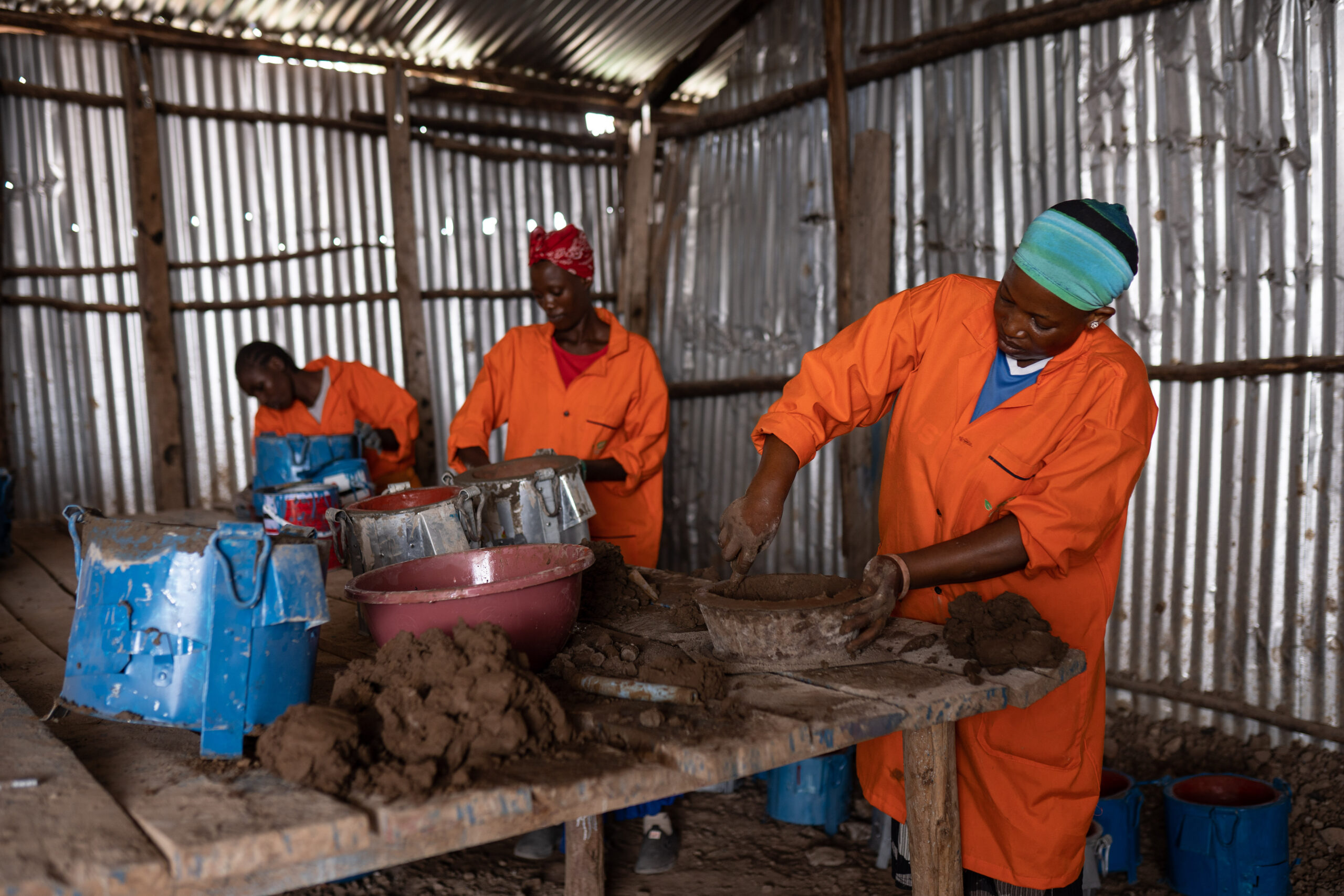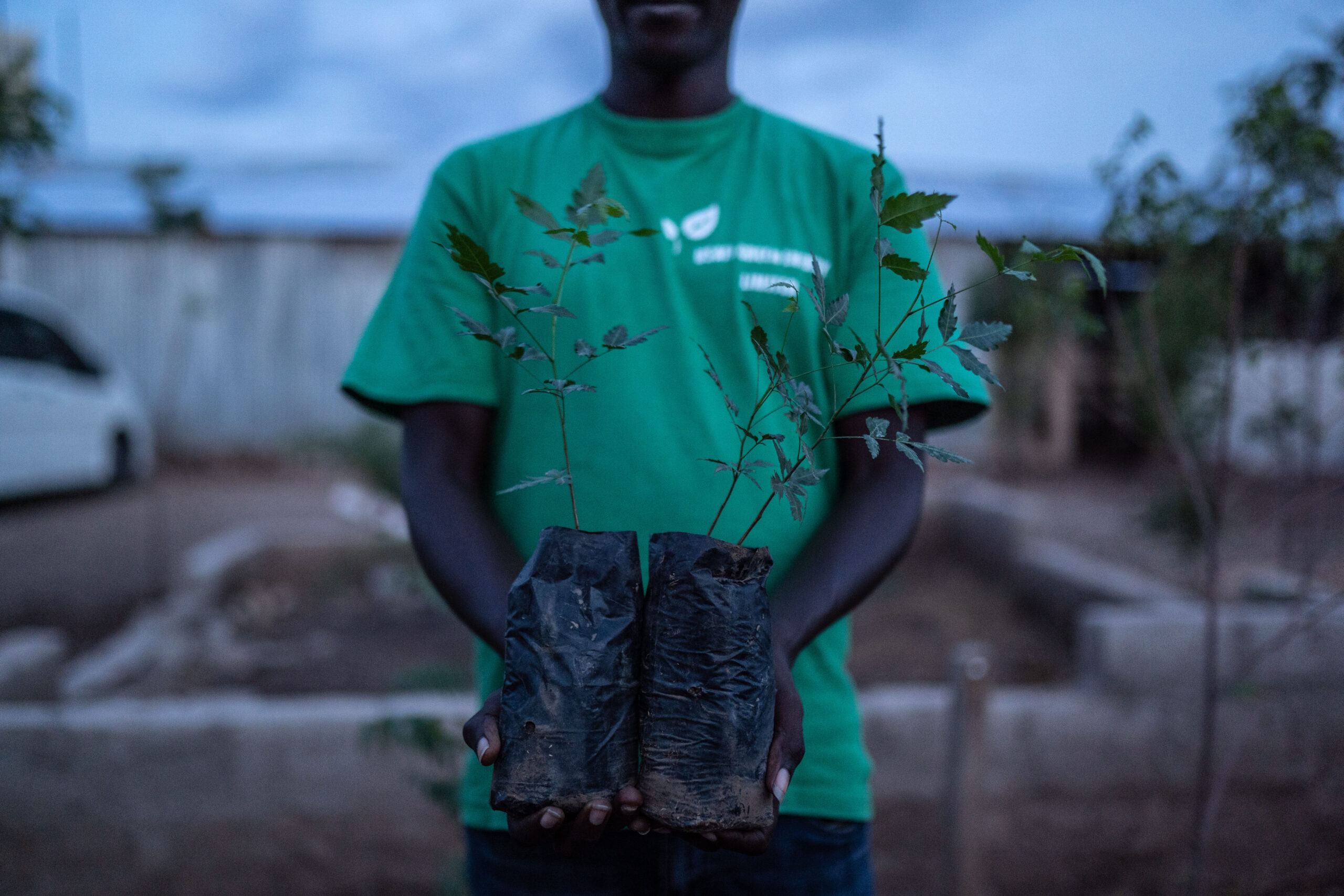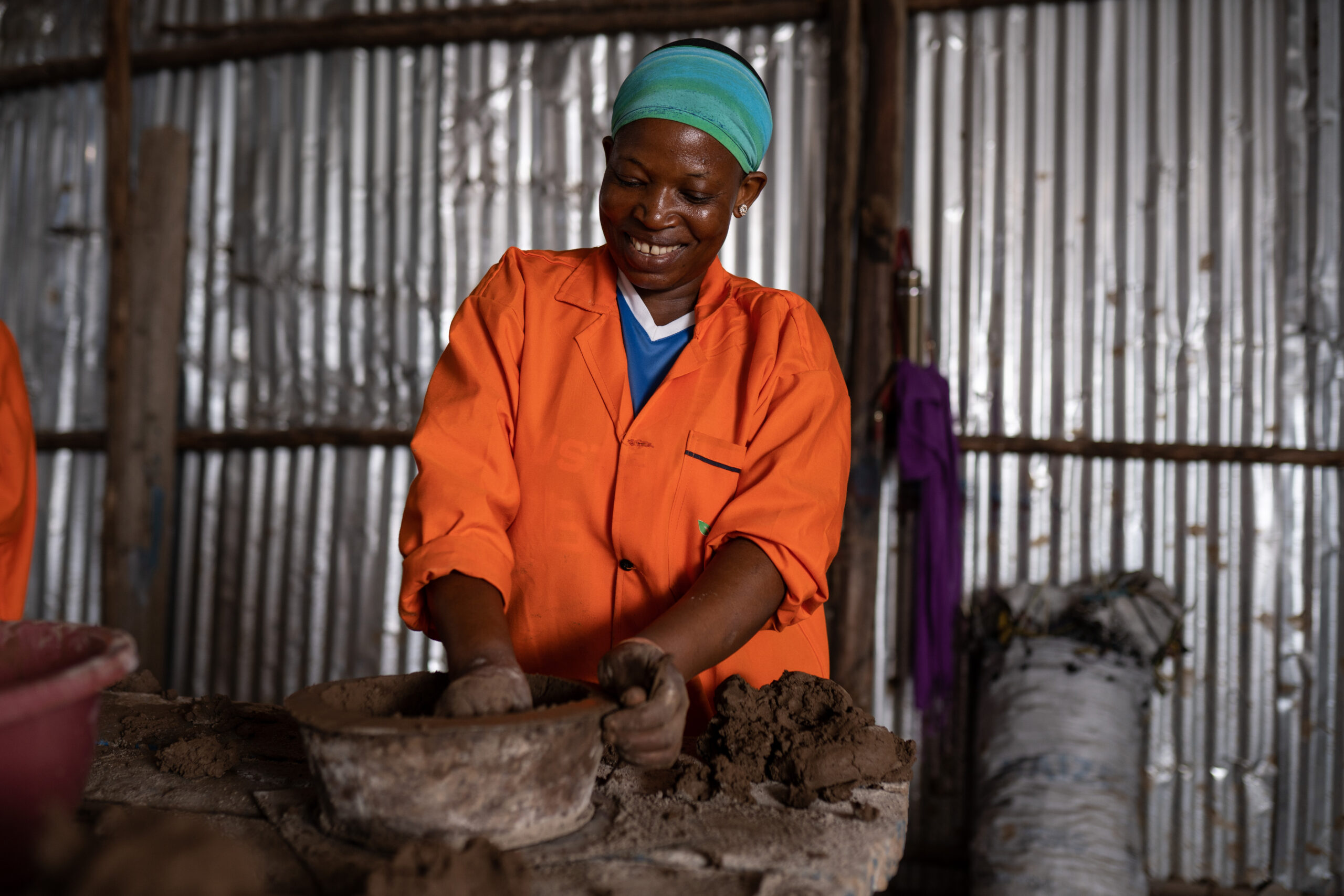His Majesty King Charles III yesterday met with low carbon innovators in Nairobi, including Peter Scott, CEO and Founder of BURN Manufacturing Co.
On greeting the King, Scott pointed out they’d met before at the Ashden Awards – an annual global awards scheme which celebrates low carbon innovators, and to which he was Patron – nearly two decades ago:
“We met about 20 years ago when I won an Ashden Award – that really kickstarted my career and since then I’ve been very busy so thanks for the nudge. Since then, I’ve gone on to create the world’s largest clean cooking company and one of the only carbon-offset project developers to cover the full carbon value chain, from project design and in-house monitoring to credit issuance.”
This year, one of BURN’s collaborators in the clean cookstove market, USAFI Green Energy is a nominee for an Ashden Award – in the category of Powering Refugees and Displaced People. The Ashden Awards boost businesses, non-governmental organisations and public sector bodies delivering groundbreaking climate action in the global South and the UK. The Awards will take place on 14 November in London and online.
USAFI Green Energy manufactures and supplies affordable, low-carbon cookstoves in Kenya’s Kakuma Refugee Camp – creating work and improving health for displaced people and host communities. They have also been distributing BURN stoves in the Kakuma refugee camp since 2020.
Brian Onyango, CEO and Founder of USAFI Green Energy says he has learnt a huge amount from Peter Scott over the years and that they work closely together.
“Peter is my key role model and mentor on clean cooking and I benchmark from him. I do a lot of site visits at the BURN factory to learn more work together on our briquettes tests and partnership alongside the stoves’ supply. USAFI Green Energy are now the second largest own-made cookstoves and briquettes producer in Kenya after BURN.”
In 2006 Peter Scott’s company was called Aprovecho and won an Ashden Award for its work with the Programme for Basic Energy and Conservation in Southern Africa (ProBEC) to design more efficient biomass stoves for institutional cooking in Malawi and other countries in the region. In 2016 it won another Ashden Award as BURN Manufacturing for its Jikokoa cookstove which cuts down on smoke and soot by more than 60% compared to the widely used Kenya ceramic jiko, and reduces deforestation because of reduced wood burning. BURN is now the world’s leading clean cookstove manufacturer, distributor, and carbon-offset project developer.
“Like BURN, through the technical and collaborative support associated with being in the Ashden
Awards process, USAFI Green Energy is putting itself in a strong business position.”
USAFI Green Energy was only founded in 2021, but already produces more than 100 of its affordable, efficient ‘Silver Bora’ brand cookstoves a day at its Kakuma factory. These are sold through a network of retailers across the camp. It directly employs 35 people to manufacture its cookstoves, and contracts 90 to manufacture the briquettes drawn from the host community. 95% of its staff are aged under 35, and 40% are women – providing training and jobs for young people and women is key to their mission.

The unique story behind USAFI Green Energy beyond the general cook stove story, is that their stoves use clean burning briquettes made at the camp, formed from unique compressed plants. The briquette ingredients include prosopis, an invasive tree species that dominates local vegetation, shrinks grasslands and is a danger to people and livestock – it sucks water from the ground, while cattle are scratched by its thorns and can be poisoned by its seed pods.
USAFI Green Energy replants the areas where it chops down the prosopis with more beneficial mwarubaini (neem) trees. It grows seedlings which are given to the community for free – more than 2,000 have been handed out so far. So the benefits of USAFI Green Energy’s cookstoves extend to protecting and regenerating the local landscape and environment, creating skilled jobs for refugees and locals, as well as providing a cheap form of fuel which also eliminates health impacts on the cookstove users.
Last month (Oct 27th) BURN Manufacturing announced the issuance of Sub-Saharan Africa’s first-ever green bond designated for clean cooking financing of USD $10 Million which will allow it to increase existing manufacturing capacity and a new manufacturing facility in Lagos, Nigeria. Production will increase from the current 400,000 units per month to 600,000 units and will produce a range of life-saving biomass, electric and LPG stoves.

Peter Scott explained further later: “We have been using carbon financing to cut stove costs by up to 90 per cent, making them affordable for African households. But we’re just getting started! The green bond is just one way in which we leverage the power of financial innovation to drive positive environmental and social change. We will continue to seek more opportunities to enable us to make clean cooking a reality for even more families.”
USAFI Green Energy have similar visions of expansion in order to help refugees and locals, who are mainly Turkana people.
Brian Onyango says: “Our aim is to expand to a larger greenhouse in the refugee setting that will nurture 10,000 seedlings to help the community to enhance forest cover and more employment to the communities in Kenya. USAFI Green Energy will be initiating its phase two of strategic plan for factory infrastructure and machines procurement to boost the productivity of our cookstoves to 3,000 pieces per month by 2024.”
Dr Stephen Hall, Head of Ashden Awards said: “We are delighted that this previous Ashden award winner BURN from nearly 20 years ago has gone from strength to strength. Through the Ashden Awards we showcase incredible low-carbon innovators, many of which go on to scale up impressively like this and are helping communities to move away from dirty and polluting fuels, create clean energy jobs, improve health and respond to the climate crisis.
“This year we have an incredible array of low carbon solutions in the awards again, including another clean cook stove company USAFI Green Energy who have found a way to turn invasive plants into clean cooking fuels for refugee communities in Kenya. Even 20 years on, clean cooking remains unavailable to hundreds of millions of people. The more we can back these innovators the quicker we will solve the challenge for good.”

